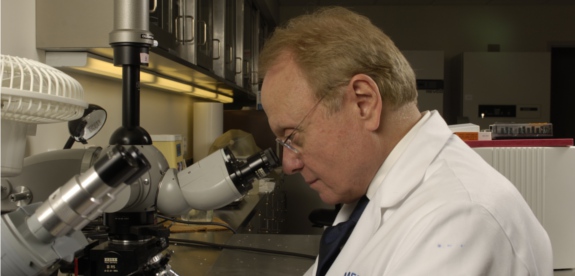
The innovative research conducted through OIUF at MERSI is sponsored from government grants, industry funding, and private donations, and takes place in our state-of-the-art research laboratory and clinical center. OIUF is always at the forefront of the newest treatments as many clinical trials are conducted at our clinical office, MERSI, every year. From Bench to Bedside, it is our goal that the results from these studies will not only affect our patients, but all patients suffering from ocular inflammatory disease. We also collaborate with physicians from around the world to share ideas, achievements, and new information in an effort to spread valuable knowledge worldwide. Background Information on Types of Funded Research:
Procedures performed in clinical trials are an essential part of drug development and device approval. The FDA mandates that certain parameters, specific to each drug or device, be collected, in order to assess safety, to evaluate the risk of adverse events, and to test efficacy of the drugs in the affected population.
Drugs, devices, diagnostic tools, and therapy regimens only make it to this level after completing rigorous pre-clinical testing (often in animals). Clinical trials follow, and typically take place in three phases:
Clinical trials may be mandated in order to show reproducibility of data, to evaluate effective drug treatment at different doses, or by different routes, or to test an approved drug for a new indication. To do this, the drug is tested against a placebo or the current standard of care, to determine which is more successful.
Randomized controlled trials are known as the “gold standard” for drawing conclusions in the medical field, as when conducted properly, they allow investigators to draw definitive conclusions from the results. This is the only type of study for which this is allowed, as bias is controlled to the highest degree possible. Masking both the investigator and the patient adds another level of security against bias, as the patient and the doctor are both unable to be swayed by their perceptions, since it is unknown as to which treatment they are receiving, which is the definition of masked.
In addition to commercially-sponsored studies, Dr. Foster and his fellows bring many studies to OIUF, which are funded by private donations. Ocular inflammatory disease is still an area uncharted by most researchers, leaving much to be discovered in terms of disease associations, novel treatment plans, and fresh perspectives on unconventional problems. These studies are funded by private donations received by OIUF. From these studies, our research fellows are able to augment the scarce literature available and take new information home to their practices for further development and try new treatments.
For more information on the conduct of clinical trials, please reference this website: https://clinicaltrials.gov/.
Participating in a research study requires significant commitment on the participant’s behalf. Study visits may be lengthier, involve further testing not routinely prescribed, and require special concessions. For this, commercially-sponsored studies often offer compensation for time and trouble. Please consider this prior to evaluating whether or not you feel you or a loved one would be a viable candidate.